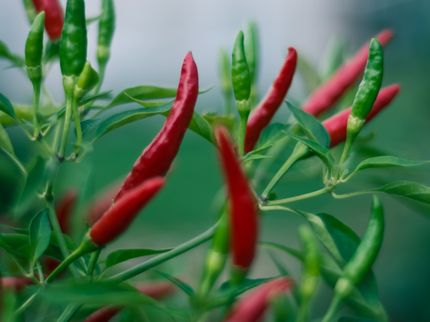Flavoring substances stimulate immune defenses
Not only do citric acid and spicy 6-gingerol from ginger add special flavors to food and beverages; both substances also stimulate the molecular defenses in human saliva. That is the result of a human clinical trial by a team from the Technical University of Munich (TUM) and the Leibniz-Institute for Food Systems Biology.
Human saliva is a complex, watery mixture made up of vastly different components. In addition to mucosal and immune cells, it contains a large number of molecules that perform a wide variety of biological functions. Not only does saliva play an important role in dietary intake, but it is also crucial to maintaining the health of one’s teeth, gums, and oral mucosa.
At the same time, it also represents the first bulwark against external pathogens. For this purpose, saliva contains various antimicrobial molecules, including the antibacterial lysozyme. These are part of the innate molecular immune system.
It has been proven that factors such as age, health, and what someone eats and drinks influence the composition of saliva. However, little is known about the effects of individual food constituents.
In order to learn more about this, a team of scientists led by Professor Thomas Hofmann, head of the Leibniz-Institute for Food Systems Biology at TUM, studied the influence of the following flavors on the composition of human saliva: citric acid (sour), the sweetener aspartame (sweet), iso-alpha acids (bitter), the flavor enhancer monosodium glutamate (umami), table salt (salty), 6-gingerol (spicy), and the substances contained in Sichuan pepper —hydroxy-alpha-sanshool (tingling) and hydroxy-beta-sanshool (numbing).
How the Molecular Defense System is Activated in Saliva
As the scientists first demonstrated by combining salivary flow measurements, proteome analyses and bioinformatic evaluations, all the substances under investigation modulate the protein composition of saliva to a greater or lesser extent.
Analyses of the biological function of the salivary proteins affected by modulation also showed that the changes triggered by citric acid and 6-gingerol activate the molecular defense system in saliva.
For example, 6-gingerol increased the activity of an enzyme that converts the thiocyanate contained in saliva into hypothiocyanite, approximately tripling the amount of the antimicrobial and fungicidal hypothiocyanite in saliva. The changes triggered by citric acid, on the other hand, caused lysozyme levels in saliva to increase tenfold.
Studies on bacterial cultures have shown for the first time that this increase is sufficient to almost completely prevent the growth of Gram-positive bacteria. Lysozyme acts against this type of bacteria by destroying their cell walls.
“Our new findings show that flavoring substances already display biological effects in the oral cavity that go far beyond their known sensory properties,” said Professor Hofmann from the Department of Food Chemistry and Molecular Sensory Science at TUM. The food chemist explains that one of the goals of food systems biology is to further investigate these using the latest analytical methods. In his opinion, this is the only way to find new approaches for the long-term production of food whose ingredient and function profiles are aligned with the health and sensory needs of consumers.
Publication:
Matthias Bader, Andreas Dunkel, Mareike Wenning, Bernd Kohler, Guillaume Medard, Estela del Castillo, Amin Gholami, Bernhard Kuster, Siegfried Scherer and Thomas Hofmann: Dynamic Proteome Alteration and Functional Modulation of Human Saliva Induced by Dietary Chemosensory Stimuli, Journal of Agricultural and Food Chemistry 6/2018. DOI: 10.1021/acs.jafc.8b02092
Most read news
Topics
Organizations
Other news from the department science

Get the food & beverage industry in your inbox
By submitting this form you agree that LUMITOS AG will send you the newsletter(s) selected above by email. Your data will not be passed on to third parties. Your data will be stored and processed in accordance with our data protection regulations. LUMITOS may contact you by email for the purpose of advertising or market and opinion surveys. You can revoke your consent at any time without giving reasons to LUMITOS AG, Ernst-Augustin-Str. 2, 12489 Berlin, Germany or by e-mail at revoke@lumitos.com with effect for the future. In addition, each email contains a link to unsubscribe from the corresponding newsletter.



























































